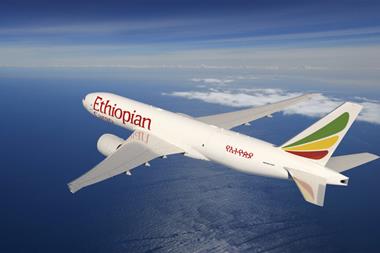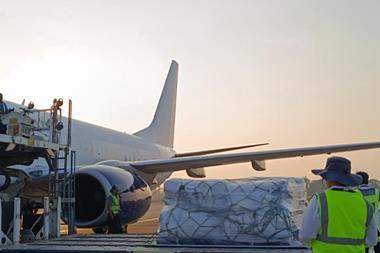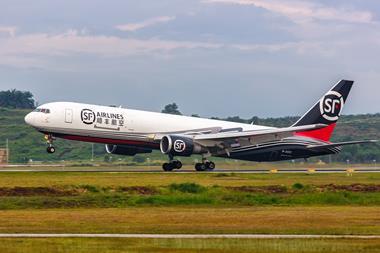SIA Cargo made a S$22m operating loss in the 2014-15 financial year, compared with a S$100m loss in prior year as it benefited from a “moderate recovery” in air cargo demand and “diligent capacity management”.
The Singapore carrier's cargo load factor - it operates eight B747-400s - improved 0.8 percentage points to 63.3% for the twelve months ending March 2015, with yield remaining "largely flat" and unit costs declining 2.3% year-on-year.
SIA Cargo’s freight carriage (in load tonne-km) fell 1.1%, and cargo revenue fell 0.9% year-on-year, despite a higher load factor and yield (+0.3%), largely due to a 2.4% reduction in capacity.
Announcing its group results, the parent company said of the 2015 airfreight outlook: “Despite global air cargo demand showing early signs of recovery, cargo yields are expected to remain under pressure due to excess capacity in the market.
“SIA Cargo will continue to manage capacity prudently and actively pursue demand opportunities in special product segments which attract higher yields.”
During the 2014-15 financial year, SIA Cargo took an impairment loss of S$63.6m on its long-term investment of an equity stake of 16% in China Cargo Airlines and recorded an additional impairment loss of S$7.0m on two surplus freighters that have been removed from the operating fleet, based on the sale price.
SIA Cargo's appeal against the Seoul High Court judgment to the Supreme Court was partially successful in the financial year. As a result, in September 2014, the South Korean Fair Trade Commission refunded KRW793.2m (S$1.0m) to SIA Cargo, being part of the fine amount paid previously.
In March 2015, SIA Cargo reached a settlement with a unnamed customer to "resolve all pending and potential civil damage claims regarding the air cargo issues". Arising from this settlement, a provision of S$13.7m was recorded.
Cargo capacity is projected to grow by around 3%-4% in financial year 2015-16.
Images may not be available on this story










